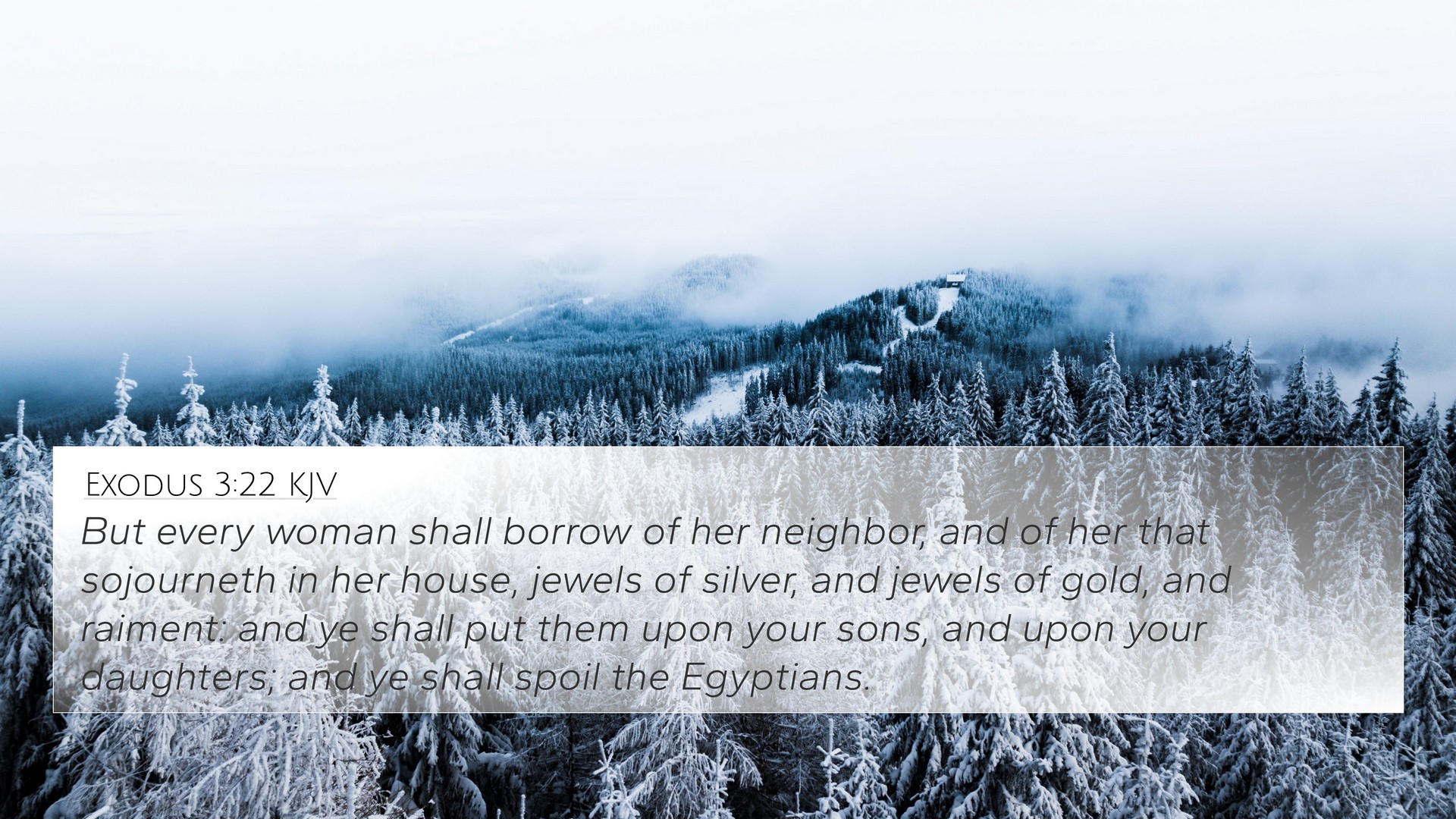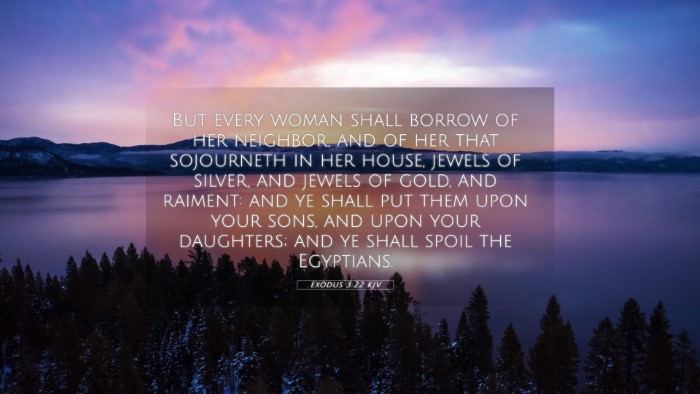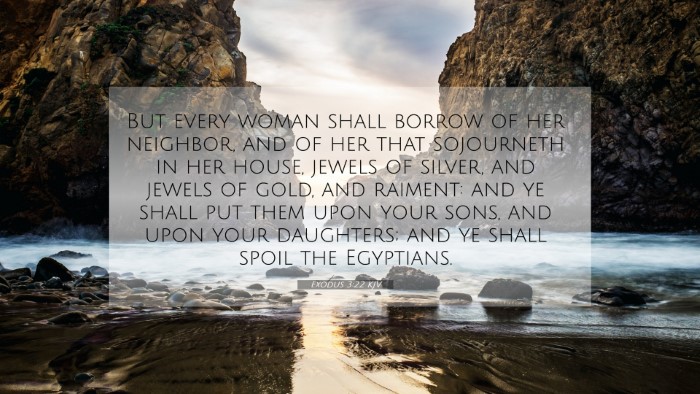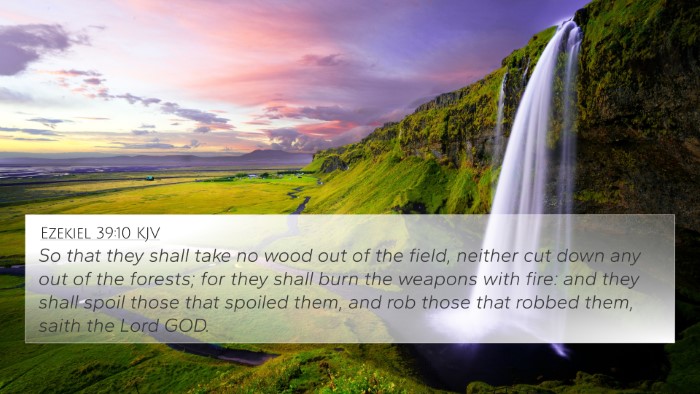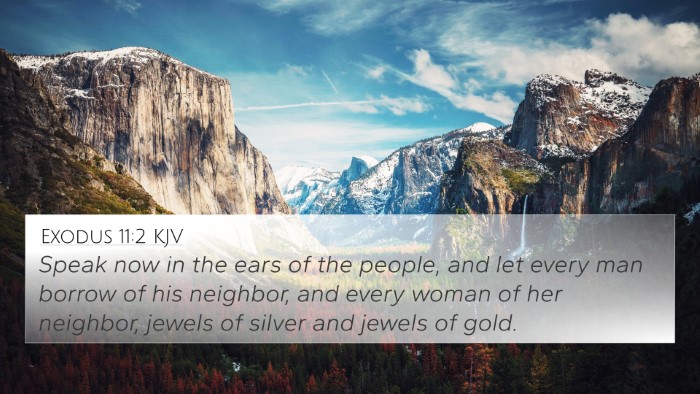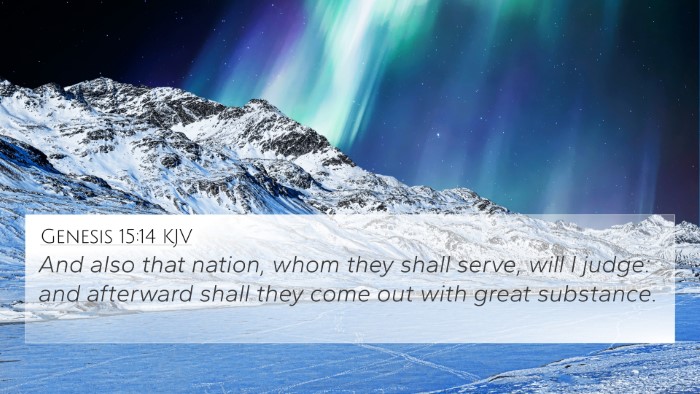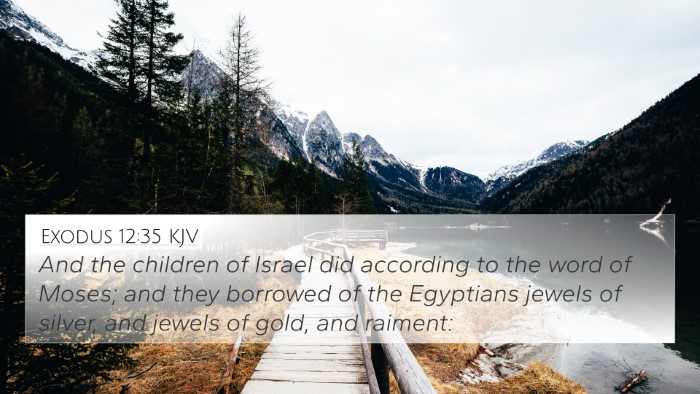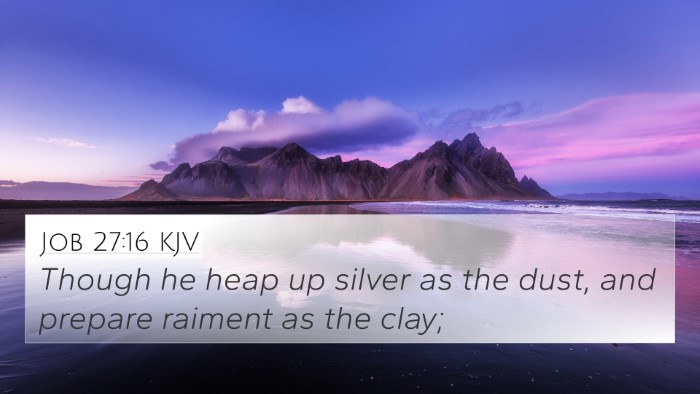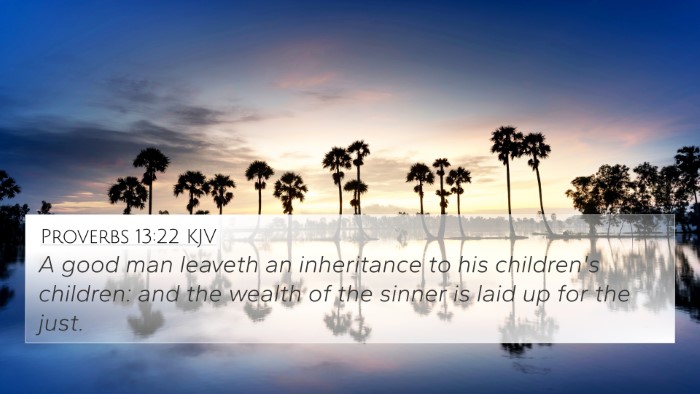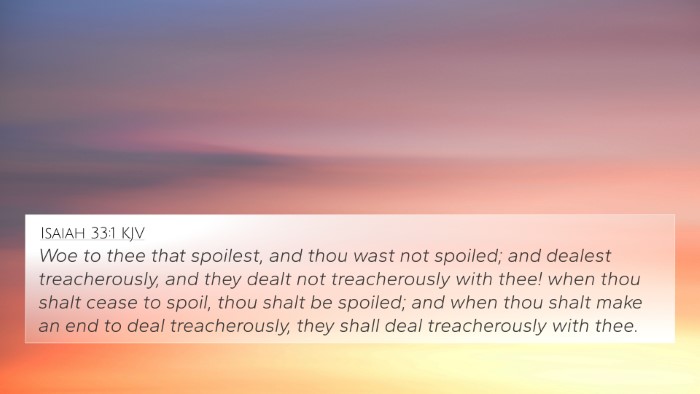Understanding Exodus 3:22
The verse Exodus 3:22 holds significant meaning within the biblical context, particularly concerning God's instructions to Moses during the Israelite's exodus from Egypt. This summary will combine insights from various public domain commentaries, such as those by Matthew Henry, Albert Barnes, and Adam Clarke, offering readers clarity on this vital scripture.
Verse Text
Exodus 3:22: "And every woman shall borrow of her neighbour, and of her that sojourneth in her house, jewels of silver, and jewels of gold, and raiment: and ye shall put them upon your sons, and upon your daughters; and ye shall spoil the Egyptians."
Commentary Insights
Matthew Henry's Commentary:
Henry interprets this verse as a divine instruction ensuring not only the Israelites' escape but also their provision during the journey ahead. The request to borrow from the Egyptians demonstrates a symbolic transition from slavery to freedom, reflecting God's promise to provide for His people. This act serves to fulfill God's covenant and demonstrates His power over the oppressors.
Albert Barnes' Commentary:
Barnes elaborates on the notion of "borrowing," indicating that it was not a mere request but a demand backed by divine authority. The jewels and garments symbolize wealth and blessing that would be transferred from the oppressors to the oppressed, underscoring God's judgment against Egypt and elevating Israel's status. This verse not only appeals to God's provision but establishes a legacy of wealth for future generations.
Adam Clarke's Commentary:
Clarke emphasizes the necessity of this act for the Israelites. The borrowing was not only about physical items but served as a strategic move to ensure the Israelites left Egypt with resources for their new life. Furthermore, this act illustrates God's justice in compensating His chosen people for their years of servitude while showcasing His ability to overturn the fortunes of nations.
Key Themes
- Divine Provision: The verse highlights God’s promise to supply the needs of His people.
- Judgment on Oppressors: The act of borrowing emphasizes God’s retribution against Egypt's oppression.
- Symbolism of Wealth: The jewels and clothes serve as symbols of blessings for the Israelites.
- Transformation from Slavery to Freedom: This verse illustrates the shift from a state of bondage to one of blessing.
Related Cross-References
This verse connects with several other scriptures, enhancing its understanding through the following cross-references:
- Genesis 15:14: "And also that nation, whom they shall serve, will I judge: and afterward shall they come out with great substance." - speaks to God's assurance of deliverance with provision.
- Exodus 12:35-36: "And the children of Israel did according to the word of Moses; and they borrowed of the Egyptians jewels..." - confirms the act of borrowing as part of their exodus.
- Psalms 105:37: "He brought them forth also with silver and gold: and there was not one feeble person among their tribes." - illustrates God's provision in their departure.
- Deuteronomy 15:12-15: "And if your brother, a Hebrew man, or a Hebrew woman, be sold unto you, and serve you six years; then in the seventh year you shall let him go free." - relates to the theme of justice and freedom.
- Isaiah 53:11: "He shall see of the travail of his soul, and shall be satisfied..." - connects the suffering and eventual justice for God's people.
- Revelation 18:13: "And cinnamon, and odours, and ointments, and frankincense, and wine, and oil..." - refers to the wealth of nations and God's judgment on them.
- Matthew 7:7: "Ask, and it shall be given you; seek, and ye shall find; knock, and it shall be opened unto you." - ties into the act of asking and receiving provision from others.
Thematic Connections
Exodus 3:22 serves an important role in understanding the broader narrative of the Israelites’ journey. It exemplifies key themes present throughout Scripture, notably:
- God's Faithfulness: His continual provision through various trials is shown.
- The Transition of Power: Ownership and triumph of God's people over their captors.
- Preparation for a New Life: The materials borrowed are essential for the Israelites as they establish themselves in the Promised Land.
- Wealth Transfer: Highlighting the biblical principle of wealth moving from the unrighteous to the righteous.
Conclusion
In summary, Exodus 3:22 encapsulates a pivotal moment in the narrative of the Israelites' liberation. The instructions given emphasize God's provision, the judgment of the oppressors, and the symbolic transition from bondage to freedom. By cross-referencing this verse with others, we can gain a deeper understanding of its significance in both the Old and New Testament contexts.
Tools for Further Study
For those interested in exploring Bible verse connections, employing tools such as a bible concordance or a bible cross-reference guide can enhance one's study. Understanding the cross-reference bible system helps identify relationships between verses effectively, revealing the intricacies of scripture.
